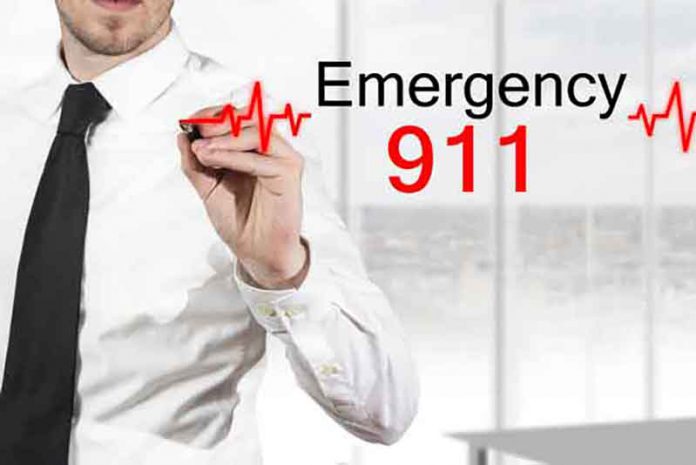Emergency medicine is a branch of medicine that deals with the diagnosis and treatment of acute illnesses and injuries that require immediate medical attention. It is a relatively new field of medicine, having only been recognized as a distinct specialty in the 1970s. Emergency physicians are trained to deal with any medical emergency, from cardiac arrest to broken bones. They work in a variety of settings, including hospitals, clinics, and even mobile units such as ambulances and helicopters. Emergency medicine is one of the most challenging and rewarding fields of medicine, and it is vital to the health care system.
Emergency medicine is a branch of medicine that deals with the diagnosis and treatment of acute medical conditions.
Emergency medicine is a vital and fast-paced specialty that concerns itself with the management of numerous urgent conditions. This dynamic subset of medicine is often dealt with in emergency rooms and involves face-to-face clinical assessment to determine diagnosis and treatment plans for patients. Carefully weighing various factors – such as the patient’s medical history and laboratory test results – specialists in this area can quickly render decisions concerning the course of care for each individual. Emergency medicine personnel also provide life-saving medical assistance through advanced medical interventions, like cardiopulmonary resuscitation (CPR) and administering medications or fluids via intravenous means. Evidently, emergency medicine seeks to provide excellent comprehensive care in moments of acute illness or sudden injury.
Emergency medicine is a relatively new field, only having been established in the mid-20th century.
Since its establishment in the mid-20th century, emergency medicine has rapidly become a vital part of the healthcare system. Trained to work in high-pressure situations and prioritize patient care, practitioners in this field offer quick assessment and management of an array of medical conditions. In addition to having specialized knowledge on triaging urgent medical needs, they are also knowledgeable about preventative health measures—from physical check-ups to mental wellness—that help people stay healthy. With their dedication and training, emergency medicine providers have made immense contributions to our healthcare system over the past few decades and continue to do so every day.
Emergency medicine physicians are trained to deal with any kind of medical emergency, from heart attacks to car accidents.
Emergency medicine physicians play a critical role in providing essential medical care when it is needed most. They are trained to respond to the full range of medical emergencies, from the most common – such as heart attacks and asthma attacks – to the most serious, like strokes and car accidents. Emergency medicine physicians must possess extensive knowledge and expertise across multiple disciplines including cardiology, orthopedics, and general medicine in order to be prepared for whatever situation they may face. In this way they can quickly assess a situation and provide timely interventions to save lives or prevent further injury or illness. As such, they are an integral part of our health care system and provide much-needed relief at times of crisis.
Emergency physicians work in a variety of settings, including hospitals, clinics, and even out in the field.
Emergency physicians are an integral part of the medical community, and can provide critical care no matter the setting. Many work in hospitals and clinics, where they triage patients with acute symptoms requiring urgent attention. They can diagnose and treat illnesses, stabilize those suffering from trauma or injury, as well as dispense medications. Others work out in the field, collaborating on disaster relief efforts or providing medical aid at sporting events or concerts. Emergency physicians play a key role in saving lives across a full spectrum of medical scenarios, acting as first responders in emergencies big or small.
Emergency medicine is a vital part of our healthcare system, and its importance will only continue to grow in the future.
Emergency medicine is an essential component of any comprehensive healthcare system. As technology advances, doctors and nurses have the ability to save many more lives through quick diagnoses and treatments provided in the emergency room. From treating people injured in car accidents to dealing with serious medical conditions and diseases, emergency rooms provide a much needed service to the public all over the world. This importance is only expected to increase as medical technology continues to develop and benefit society. Furthermore, by having access to highly trained medical professionals day or night, emergency care ensures that anyone who needs immediate attention can get it no matter what time of day it is. Therefore, whenever a healthcare crisis demands urgent responses, emergency medicine will be there for us.
Emergency medicine has come a long way, and today we are able to rely on skilled emergency medicine physicians to provide us with excellent care when we experience a medical emergency. Emergency medicine continues to be an important part of our healthcare system and will remain so for years to come. If you or someone you know is ever faced with a medical crisis, it’s important that you contact an Emergency Medicine Physician immediately, as they will be able to provide the best care and advice through these difficult times.







